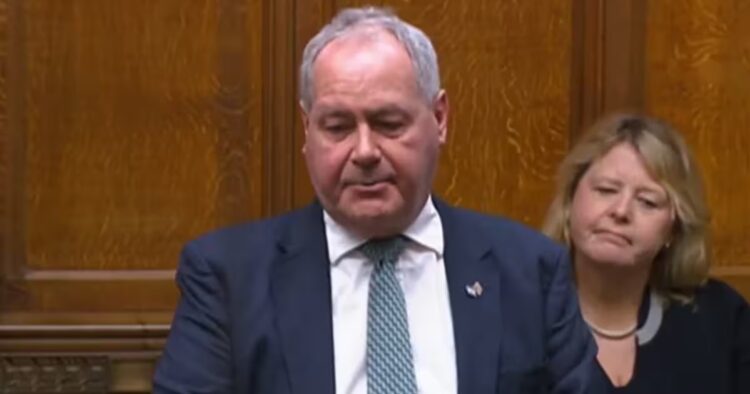The British Broadcasting Corporation (BBC) has come under scrutiny in the UK Parliament following accusations of biased reporting during its coverage of the consecration ceremony of the Ram Mandir in Ayodhya on January 22. Bob Blackman, a member of the Parliament, raised concerns about the BBC’s portrayal, alleging that it failed to acknowledge the temple’s history of over 2,000 years and incorrectly portraited it as the site of a mosque’s destruction.
Parliamentary Address: Speaking in the UK Parliament, Bob Blackman highlighted the significance of the Ram Mandir consecration and expressed disappointment in the BBC’s coverage. He pointed out that the BBC erroneously reported the site as the location of a destroyed mosque, overlooking its historical identity as a temple. Blackman emphasized the need for the BBC to provide an unbiased and accurate representation of global events, urging fellow members to consider a debate on the impartiality of the BBC.
In a subsequent post on social media, Bob Blackman revealed that his constituents had raised concerns about the BBC’s biased reporting on the Ram Mandir consecration. As a supporter of Hindu rights, Blackman noted that the article had caused disharmony and emphasized the importance of the BBC delivering a fair and accurate account of global events.
In addition to the scrutiny faced by the British Broadcasting Corporation (BBC) over biased reporting on the Ram Mandir consecration in Ayodhya, it is noteworthy that several other international media channels, such as CNN, The New York Times, Dawn, and The Express Tribune, also approached the event with political undertones.
CNN’s coverage of the ceremony included a headline emphasizing Prime Minister Modi’s role in inaugurating the temple and framed it as a significant move in the context of upcoming nationwide elections. The New York Times contributed both a news article and an opinion piece, the former titled ‘Modi Opens a Giant Temple, a Triumph Toward a Hindu-First India,’ and the latter questioning the importance of Bharat’s new Ram Temple.
Dawn Online relied on AFP’s coverage, presenting it with the headline ‘Modi opens flashpoint temple symbolizing his changing Bharat.’ Similarly, The Express Tribune, in its online coverage, utilized Reuters’s report with the title ‘Bharat’s Modi leads consecration of Ram temple in Ayodhya.’
This widespread international media attention underscores the complex nature of the Ram Mandir consecration, with different outlets interpreting and framing the event through varied political lenses. The controversies surrounding media coverage extend beyond the BBC, prompting a broader parliamentary debate on the impartiality of reporting on global events, particularly those with deep historical and cultural significance.
In conclusion, the controversy surrounding the BBC’s coverage has sparked a parliamentary debate on media impartiality, with calls for the broadcaster to provide a more accurate and balanced representation of global events, particularly in matters of historical and cultural significance.

















Comments